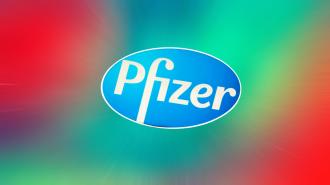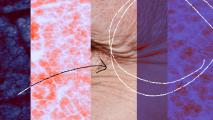Pfizer’s RSV vaccine for pregnant women protects newborns
A phase 3 trial of Pfizer’s maternal RSV vaccine has found the shot lowered the rate of severe RSV in newborns by 81.8%, the company announced. The strong result spurred the pharma giant to pause the trial and prepare to file for FDA approval.
The news comes as the US is facing a brutal early wave of RSV infections in children, a surge that is swamping pediatric hospital units.
Respiratory syncytial virus (RSV) infects the lungs and respiratory tract, and it is so common that nearly all children have been infected at least once by the time they hit two.
While generally mild, the virus can be fatal to infants, the elderly, and people with other chronic health conditions, and it kills about 100,000 children globally per year — with more than half less than 6 months old.
In 2022, after taking a season off during the pandemic, RSV cases have come on like gangbusters, with the number of children being significantly ill higher.
A phase 3 trial of Pfizer’s maternal RSV vaccine has found the shot lowered the rate of severe RSV in newborns by 81.8%
Pfizer’s RSV vaccine aims to protect infants with a maternal vaccine — by vaccinating expectant mothers, antibodies are passed along in the womb, potentially conferring immunity at birth.
“Literally, from the moment of birth you have protection, and duration of protection throughout the six months, which is what we’ve shown in our clinical trials,” Angela Hwang, Pfizer CCO and president of global biopharmaceuticals business, said during an earnings call, per FierceBiotech.
The vaccine uses a protein that RSV uses to break into lung cells, creating antibodies that neutralize the virus.
After decades with little progress, RSV is finally in the crosshairs of the pharmaceutical industry. Pfizer has seen positive results in a trial for their vaccine in older adults, as well, and rival GSK’s vaccine showed 94% efficacy against severe RSV in seniors. However, trials of GSK’s maternal RSV vaccine have been suspended due to an unknown safety issue.
Meanwhile, Sanofi and AstraZeneca are taking a different approach to preventing RSV, with a single-dose, long-acting antibody injection.
Pfizer said it will submit its maternal vaccine trial results to a peer-reviewed journal, with STAT reporting that full results will also be shared at a future medical meeting. They expect to file for approval with the FDA by the end of 2022, but they anticipate several months of review before the agency makes a decision.
We’d love to hear from you! If you have a comment about this article or if you have a tip for a future Freethink story, please email us at [email protected].






